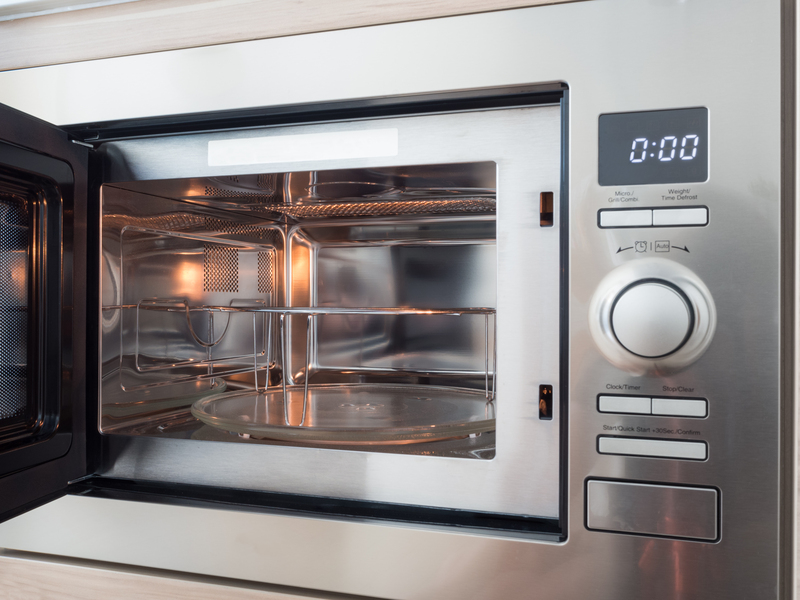The Smart Way to Tackle Cleaning Duties
Posted on 24/06/2025
The Smart Way to Tackle Cleaning Duties
Cleaning is a necessary part of everyday life--whether at home, in the office, or in public spaces. However, tackling cleaning chores doesn't have to be a dreaded, time-consuming ordeal. By adopting smart cleaning strategies and leveraging modern tools, anyone can master the art of efficient cleaning without sacrificing quality. In this comprehensive guide, we'll introduce you to the principles and practices behind the smart way to tackle cleaning duties, offering actionable tips, expert advice, and product recommendations for a cleaner, healthier environment.

Why Smart Cleaning Techniques Matter
Traditionally, cleaning has been viewed as a mere routine--dusting, wiping, vacuuming. But in a fast-paced world, efficiency, effectiveness, and sustainability matter more than ever. The smart approach to handling cleaning tasks not only saves you valuable time and energy but can also:
- Reduce stress by breaking overwhelming tasks into manageable steps
- Promote hygiene and improve indoor air quality
- Enhance productivity--a clean environment supports clear thinking
- Extend the lifespan of furnishings and appliances
- Minimize environmental impact through eco-friendly choices
Let's dive into the intelligent ways to handle cleaning duties smartly, transforming the way you see and do chores.
Setting the Stage: Mindset and Motivation
1. Prioritize and Plan
Before you even pick up a mop or spray bottle, the first step to smart cleaning is planning. Evaluate your space and needs:
- Which areas require regular cleaning?
- Are there high-traffic zones that need attention more often?
- What cleaning supplies and tools will you need?
Creating a cleaning checklist or schedule transforms chores from ambiguous tasks into concrete action items, making it easier to stay on track.
2. Set Realistic Goals
Don't attempt to clean the entire house in a single day unless absolutely necessary. Segment your cleaning duties by room, priority, or frequency. This divide-and-conquer strategy not only makes tasks manageable, but also offers a sense of accomplishment as you progress.
3. Embrace the Power of Habits
The smart way to approach cleaning chores is to incorporate them into your daily or weekly routine. Small daily habits--like wiping kitchen counters after meals or doing a quick 5-minute tidy before bed--minimize the need for weekend marathons.
Maximizing Efficiency: The Smart Cleaning Workflow
4. Gather Your Tools First
A common rookie mistake is starting to clean only to crisscross the house gathering supplies. Instead, prepare an organized cleaning caddy stocked with your go-to products and tools. This saves time, reduces frustration, and keeps you focused on the task at hand.
- Multi-surface cleaner
- Microfiber cloths
- Scrub brushes & sponges
- Protective gloves
- Duster or vacuum attachments
5. Clean Top to Bottom & Left to Right
A golden rule for efficient cleaning is always start at the top of a room (ceilings, shelves) and work downwards (tables, floors). This way, dust and debris naturally settle on lower surfaces only once, eliminating redundant work. For wider spaces, move methodically left-to-right, ensuring no spots get missed.
6. Focus on High-Impact Areas
When time is short, prioritize high-traffic areas and touchpoints such as door knobs, light switches, kitchen counters, and bathroom surfaces. These are hotspots for germs and mess and have the biggest impact on overall cleanliness.
Upgrading Your Cleaning Arsenal: Tools & Products That Work Smarter
7. Invest in Quality Tools
The era of laboring with ineffective brooms and worn-out mops is over. The intelligent way to tackle cleaning duties means using time-saving tools, including:
- Microfiber cloths: Efficiently pick up dust, debris, and bacteria without excessive chemicals.
- Robotic vacuums: Automatically keep floors tidy with minimal manual labor.
- Steam cleaners: Harness the sanitizing power of heat to clean and disinfect surfaces quickly.
- Cordless handheld vacuums: Perfect for spot-cleaning crumbs, pet hair, and car interiors.
Choose products that are durable and easy to maintain--a one-time investment in quality can save you time and money in the long run.
8. Go Green with Cleaning
Using eco-friendly cleaning products not only benefits the planet but can also create a healthier home. Look for plant-based, biodegradable formulas that avoid harsh chemicals. Alternatively, simple DIY solutions--like vinegar, baking soda, and lemon juice--make effective and safe cleaners.
Smart Strategies for Specific Cleaning Tasks
9. Master the Kitchen
The kitchen is a hub for daily life, but also spills, crumbs and sticky counters. The smart method for kitchen cleaning involves:
- Always clean as you cook--wipe spills immediately.
- Run the dishwasher daily to prevent pile-up.
- Disinfect handles, knobs, and sink regularly.
- Empty the trash and compost before it overflows.
- Clean out the fridge weekly, discarding expired items.
10. Take On the Bathroom Like a Pro
Bathrooms require regular attention to prevent mold, mildew, and odors. Use the intelligent cleaning approach:
- Apply bathroom cleaner to tub, tiles, and toilet and allow it to sit. Scrubbing is easier and more effective after a few minutes.
- Wipe mirrors and fixtures with a microfiber cloth.
- Replace towels and stock toilet paper routinely.
- Keep a squeegee handy to prevent water spots and mildew after showers.
11. Address Living Areas and Bedrooms Efficiently
Use the smarter way to clean family areas by:
- Decluttering surfaces before you dust or vacuum.
- Vacuuming in two directions (north-south, then east-west) for thorough dirt removal.
- Refreshing fabrics--pillows, curtains, upholstery--with a steamer or fabric spray.
- Making beds and folding throws instantly refreshes the space and prevents dust buildup.
Automate and Delegate: Reduce Workload, Not Cleanliness
12. Utilize Smart Home Technology
In today's connected world, automating cleaning tasks can be a lifesaver. Smart vacuums, programmable air purifiers, and connected dishwashers enable you to schedule and monitor cleaning remotely. Use reminders and timers from your phone or smart assistant to stay consistent without constant mental effort.
13. Share the Responsibility
If you live with others, don't shoulder all the cleaning work yourself. The smart way to manage cleaning chores is to assign age-appropriate tasks to all household members. Rotating weekly jobs or using chore charts encourages accountability--and teamwork makes the burden lighter for all!
Handling Challenges: Overcoming Cleaning Hurdles
14. Dealing with Motivation Slumps
Even with the best systems, cleaning burnout happens. Combat procrastination by:
- Playing upbeat music or a podcast to make chores more enjoyable.
- Setting a timer for focused work intervals (try the "15-minute blitz"!).
- Rewarding yourself with a treat--a coffee break or favorite show--after a cleaning session.
15. Adapting for Allergies and Sensitivities
If you or your family members have allergies, smart cleaning means more than just looking tidy. Use HEPA-filter vacuums, choose fragrance-free and hypoallergenic cleaning products, and regularly wash linens and curtains to minimize allergens in your environment.
Maintaining Consistency for Long-Term Cleanliness
16. Follow a Weekly Cleaning Routine
Consistency is the cornerstone of the smart way to handle cleaning chores. Create a simple weekly plan and stick with it. For example:
- Monday: Dust and vacuum living areas
- Tuesday: Clean kitchen surfaces and appliances
- Wednesday: Bedrooms and laundry
- Thursday: Bathrooms
- Friday: Decluttering or deep cleaning specific area
- Saturday: Outdoor spaces or garage
- Sunday: Rest and reset
17. Use Reminders and Checklists
Whether you prefer paper lists or digital apps, reminders prevent tasks from falling through the cracks. Checking off completed chores provides positive reinforcement, motivating you to keep up the good work.

Frequently Asked Questions: Smart Cleaning
What is the most efficient order to clean a house?
Start with decluttering, then dust high to low, wipe and sanitize surfaces, clean floors last. Always move from room to room systematically for efficiency.
How can I reduce time spent on cleaning?
Clean up small messes immediately, use the right tools, and establish daily habits. Embrace automation or delegate tasks where possible.
What are essential products for easy cleaning?
Microfiber cloths, all-purpose cleaner, vacuum with HEPA filter, mop, baking soda, vinegar, and scrub brushes should be in every cleaning kit.
How can I motivate my family to help with cleaning?
Assign age-appropriate chores, use reward systems, and make cleaning a group activity with music or shared goals.
Conclusion: Clean Smarter, Not Harder
The smart way to tackle cleaning duties isn't about spending all day scrubbing. It's about leveraging planning, smart tools, automation, and habits that work for your lifestyle. By combining these strategies, cleaning transforms from a burdensome duty to an efficient, even satisfying, part of everyday life. Start small, build momentum, and above all--celebrate your cleaner, healthier home!
Remember, the secret to effective cleaning lies not in working longer, but in working smarter. Put these expert-backed tips into practice and discover the best way to handle cleaning chores intelligently, freeing up more time to enjoy the things you love.



